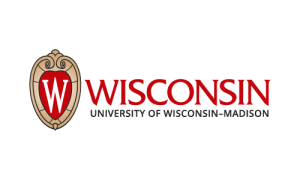University of Wisconsin: UW–Madison begins distributing $28.6M in emergency pandemic aid to students
The University of Wisconsin–Madison will distribute more than $28.6 million in federal emergency aid this academic year to students facing the ongoing impacts of the COVID-19 pandemic. This week, $7.7 million of the total was sent to more than 6,500 high-need students in the form of automatic awards.
The money comes from the third round of the Higher Education Emergency Relief Fund (HEERF III), authorized by Congress in March as part of the American Rescue Plan Act of 2021. As in prior rounds, UW–Madison’s approach to distributing the money includes emergency grants that students with financial need can use to pay off debts or to cover costs such as tuition, food, housing, health care and child care. Eligibility extends to students in all programs (undergraduate, graduate, professional, and special students) and with any citizenship or residency status (e.g., U.S. citizens, permanent residents, international students, refugees, asylum seekers, DACA recipients, other DREAMers, and undocumented students).
UW–Madison’s total award in this third round of federal funding is $53.4 million. Of that, the university is required to spend at least $26.7 million on emergency aid directly to eligible students. The rest will be used by the institution to offset expenses related to COVID-19, such as staffing, materials and lab costs associated with the university’s testing requirement for unvaccinated staff/students and campus testing sites available to all UW community members. UW–Madison will use an additional $1.9 million from its institutional portion of the federal award to directly assist students by clearing emergency loans and student account balances accrued by the highest-need students during the pandemic.
Automatic Awards to Highest Need Students
More than 4,600 Federal Pell Grant recipients received an email on Aug. 25 from the Office of Student Financial Aid (OSFA) notifying them that they had received an automatic emergency grant. Eligibility was expanded for this round of funding to include more than 1,900 additional undergraduate students with a high level of demonstrated financial need as indicated via their Free Application for Federal Student Aid (FAFSA) form. In total, $7.7 million was sent to more than 6,500 high-need students.
This automatic emergency grant, which varies from $750 to $1,750, is intended to quickly get assistance to those most in need before classes begin on Sept. 8. Students decide how to use the money, including paying down tuition, reducing their already accepted student loans, or for any other needs as they get ready for the school year.
Online Emergency Applications for All Students
Beyond the automatic grant, any enrolled UW–Madison student experiencing emergency financial hardships that render them unable to meet immediate, essential expenses can request emergency funds from the university. All students in all programs can request funds, including students who already received an automatic emergency grant if their emergency financial hardship exceeds the automatic grant amount.
Students may submit an Emergency Support Request using the online form in their MyUW Student Center (Student eForms tile, in the Financial Aid folder). Requests will be reviewed on a case-by-case basis and funds will be offered within one to three business days. Students are encouraged to set up eRefund (direct deposit) if they have not already done so for fastest receipt of funds, which can take up to three business days to be posted by their bank or credit union.
Clearing Balances on Institutional Loans and Student Accounts
UW–Madison will also discharge $1.9 million in university-provided crisis and emergency loans taken out by students due to the global pandemic, and past-due student account balances incurred during the pandemic by students with financial need. This action cancels out all emergency loan balances remaining for students who accessed emergency loans during the pandemic — the student population most acutely impacted by the pandemic.
Clearing these outstanding balances enables these students to continue pursuing academic and professional goals by removing barriers to enrolling and accessing transcripts. Impacted students will be notified directly as the details are finalized.
Additional Resources Available
In addition to direct financial support, UW–Madison continues to connect students with resources to meet and navigate basic needs (e.g., internet/technology, child care, housing and employment) and food assistance. University Health Services has also provided information on available healthy food at https://www.uhs.wisc.edu/prevention/food-assistance/.
The OSFA team is available to meet in-person or virtually to answer any questions students may have. Students may schedule an appointment using the Starfish tool in their MyUW portal or they can reach their team via email ([email protected]) or phone (608-262-3060) during business hours, Monday through Friday from 8 a.m. to 4 p.m. The Dean of Students Office is also available to help connect students with resources and University Health Services offers 24/7 Crisis Support.

